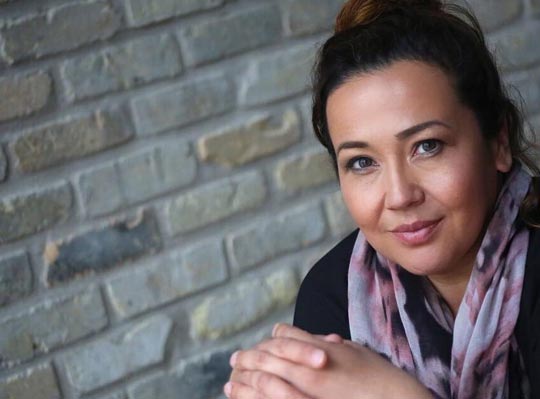I’d say most Canadians have their eyes and ears glued to news about the COVID-19 virus but there are still people amongst us who don’t seem to be taking this pandemic very seriously. Let’s consider why, and more importantly how to get people to respond.
Since mid March, I have been watching worldometers.info to review daily confirmed cases, deaths and recoveries of the coronavirus. The site aggregates data for 199 countries and territories around the world. Today Canada is ranked in the top 15 with data clearly showing our numbers rising daily. For certain, things will get worse before they get better.
Perhaps, some people may be desensitized to this pandemic where the only way they know how to cope is to turn a blind eye and continue with life as normal. Looking at this specifically for the Indigenous populations, consider the Truth and Reconciliation Commission of Canada (2016) which states Indigenous peoples have experienced layers of multigenerational trauma, injustices, and oppression that continue to resonate within families, communities and individuals. This in part may contribute to the apathetic response we are seeing in some people during this pandemic. Apathy is the response of feeling less shocked or distressed to a situation because of the overexposure to suffering. And from a poverty perspective, some people simply can’t stay put because they can’t afford to stock up on a month’s supply of food and essentials.
That is why we need to work collaboratively to help one another manoeuvre these challenges as best we can. Renata Meconse for example is leading communications for the Manitoba First Nations Covid-19 Pandemic Response Coordination Team. Originally from Pinaymootang First Nation, she is working with the First Nations Health and Social Secretariat of Manitoba, encouraging community leaders to speak out, including role models and youth to post videos on social media to educate and urge our population to stay home to lessen the spread of the virus. We need to support her efforts and follow her lead. Yesterday she posted on her Facebook page: “You’re not stuck at home, you’re safe at home. One word can change your attitude and one cough can change your life”. If we don’t change our behaviours now, we will see more unnecessary deaths amongst us.

Photo: Renata Meconse, First Nations Health and Social Secretariat of Manitoba.
From an Indigenous lens, we know a virus can spread like wildfire. Looking back at past epidemics, the Indigenous peoples alive today represent the 10% that survived a near annihilation. Smallpox, influenza and measles killed approximately 90 percent of Indigenous Peoples across Turtle Island. It is estimated in Canada the Indigenous population was between one and twenty million. Henry F. Dobyns estimates the Americas had between 90 and 112 million people overall just before the arrival of Europeans. We will never know the actual truth of these debatable numbers because the viruses raced ahead of Europeans killing millions. Therefore, European newcomers would never witness our true population. These massive deaths left our Nations unstable and ripe for colonization. So, what can we learn from this? What if our ancestors knew what we know now, that coughing, sneezing and direct contact with respiratory droplets was infecting and killing them? They could have self isolated and saved lives. And if they could see what is happening to us now, what would they say to us? Like government and health officials, they would be pleading with us to stay home, to isolate from each other to lower the death count.
Covid-19 is a powerful virus, one we have not seen before and it has ignorance, peer pressure and misinformation on its side. Just a few weeks ago, many of us were living our lives without ever really seeing each other, as we were all just keeping up with life’s daily demands and routines. Pause and reflect on every decision you have made just a few weeks ago that could now put you or your loved ones at risk. In early March there was still misinformation circulating. There was also a false reassurance that the virus couldn’t survive in warmer climates for example, or that it wasn’t going to peak here till the summer months. We know now this is untrue. Fewer numbers were being reported for certain countries because there has been less testing. This misinformation is now being corrected with the increase of mass media efforts to educate the public. But will this change our collective behaviors soon enough? Only time will tell.
The self isolation has been challenging but necessary for everyone, including me. After travelling earlier this month, upon return I had myself tested for the virus with result that came back negative. I now realize I put myself and my loved ones at risk, and this has been a weight during the self isolation period. I’ve had lots of time to educate myself about the virus and there is still conflicting information about some things. In retrospect, I made my decision to travel based on false information that the virus was not picking up in certain areas. The issue is that testing is not consistent in each geography and therefore reporting may not be accurate. For this reason, its important to stay informed with sources you can trust. Now that the virus is in the city and reaching our communities, visiting each others’ homes, leaving the house for any reason puts us at risk. Until this pandemic peaks and passes through our territories, any behavior that requires you to leave your home puts you at risk. There is also the concern that people still don’t fully understand how to protect themselves or who have false beliefs that it will only affect the elderly, this is not true. This virus does not discriminate and as each day progresses, we are seeing that younger populations are getting the virus too.
For this reason, Renata is asking us to help collective efforts to keep each other safe. “Let’s help by using our phones and social media to spread the word, stay connected and educate ourselves and each other”. You may have to turn people away who show up at your door but explain to them why, with love and kindness. The last thing anybody needs is more judgement and harsh words when psychologically we are all suffering in isolation with worry.
Historically, our Nations have been through layers of trauma that we continue to recover from, and we can’t give up now. Consider what it is going to take to keep your families intact. I was talking to my cousin Dr. Lisa Monkman Kinew who put it into perspective. She said “with a case mortality rate of around two percent, we will all know someone who dies from the virus. And I’m not ready to lose a life from a potentially preventable illness. I want to be sure that I’ve done everything in my power to protect myself, my family and patients from the coronavirus”. We can change the outcome and “we can all help by staying at home and putting physical distance between each other at this time. We can better protect our communities by reducing or not having visitors for the time being. Washing hands and being very careful when interacting with Elders is very important too. We can also stay in touch through different ways like phone calls and Facetime. If we all take these extra precautions during this time, we will see less of COVID-19’s impacts in our communities.” says Renata.
I pray this virus does not take your loved ones and that together we can keep each other safe. Personally, it has been difficult to tell people not to come over at this time, but it has to be done. None of us want the COVID-19 virus in our homes or community. Let’s follow these measures to keep our families and ourselves safe:
- Stay home
- Practice physical distancing by keeping two metres (or six feet) between you and others.
- Wash your hands with soap and water often.
- Avoid touching your face, nose and eyes- that’s how the virus gets into your system.
- Strengthen your immune system by eating healthy, getting good rest and taking vitamins if you need to strengthen your immune system.
- Drink lots of warm water.
- Avoid crowds and groups.
- Keep your living areas clean by disinfecting areas daily in your household that are frequently touched.
Let’s remember who we are. We are strong, resilient peoples. We have survival in our bloodlines. We are the 10% that survived epidemics and a cultural genocide within our homelands. Today we represent 1.4% of the Canadian population. Statistically we have 977,230 First Nation, 587,545 Metis and 65,025 Inuit peoples who have self-identified as Indigenous in Canada. Let’s remember our history and our teachings, and more importantly let’s work together to keep our population alive! Recall the words of our ancestors to remember that as kin we are responsible to and for each other. Although spring is upon us and we want to get outside, we must stay in hibernation a bit longer. I read a teaching of the bear on my cousin Irma Nepinak’s Facebook page posted March 29, 2020. The post had been copied and pasted several times, so I was unable to connect with the original writer. Nonetheless, I thank you the original writer for this message and hope you read this article to see how your words have connected our past with our present in a fight for our future.
“When a bear goes into hibernation, they do it for the health of their community and themselves. In the winter, food is scarce, hibernating allows other animals to have access to the limited resources. It slows the spread of disease and virus among other animals during a season when immune systems are lowered, and energy is limited... It is also a time of conserving health for the bear, a time for reflection... it is a time that allows you to renew, to undergo change, to honour your place in life and food cycles.
It is not a time for anxiety. When it is time for hibernation, a bear can finally relax. All of the stress of finding food, territory, and a mate disappears. The bear believes that they have done enough and trust in themselves. They know this process is necessary and they will come out the other side renewed. Be the bear. Stay home. Rest. Know you are doing this for something much bigger than yourself.
If your community requires support from the Manitoba First Nations COVID-19 Pandemic Response Team, send your concern or issue to covid19@fnhssm.com. If you are a member of the First Nations community and have a question or concern about COVID-19, email: covid19@fnhssm.com.
The Manitoba Metis Government is also working to support Metis Citizens who have been negatively affected by the COVID-19 Pandemic. They will be providing an emergency financial supplement to eligible Metis to help alleviate the economic hardship until the Canada Emergency Response Benefit becomes available in April. For more information and to see if you qualify visit the Manitoba Metis website: www.manitobametis.com/news/mmf-bridging-financial-support/.

Rebecca Chartrand writes about amazing Indigenous women who are sharing in the responsibility to guide our nations back to a place of well-being.